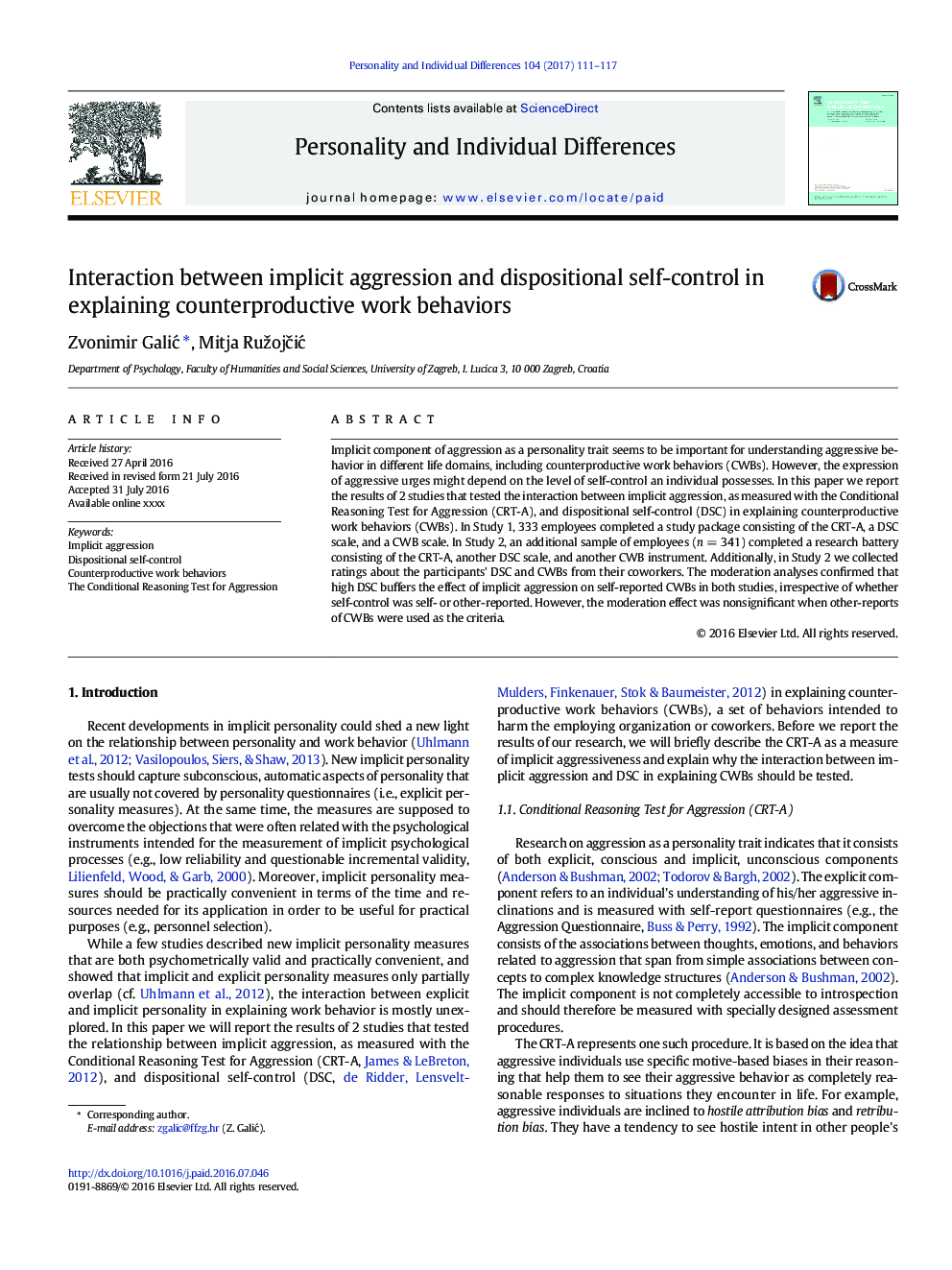| Article ID | Journal | Published Year | Pages | File Type |
|---|---|---|---|---|
| 7249446 | Personality and Individual Differences | 2017 | 7 Pages |
Abstract
Implicit component of aggression as a personality trait seems to be important for understanding aggressive behavior in different life domains, including counterproductive work behaviors (CWBs). However, the expression of aggressive urges might depend on the level of self-control an individual possesses. In this paper we report the results of 2 studies that tested the interaction between implicit aggression, as measured with the Conditional Reasoning Test for Aggression (CRT-A), and dispositional self-control (DSC) in explaining counterproductive work behaviors (CWBs). In Study 1, 333 employees completed a study package consisting of the CRT-A, a DSC scale, and a CWB scale. In Study 2, an additional sample of employees (n = 341) completed a research battery consisting of the CRT-A, another DSC scale, and another CWB instrument. Additionally, in Study 2 we collected ratings about the participants' DSC and CWBs from their coworkers. The moderation analyses confirmed that high DSC buffers the effect of implicit aggression on self-reported CWBs in both studies, irrespective of whether self-control was self- or other-reported. However, the moderation effect was nonsignificant when other-reports of CWBs were used as the criteria.
Keywords
Related Topics
Life Sciences
Neuroscience
Behavioral Neuroscience
Authors
Zvonimir GaliÄ, Mitja RužojÄiÄ,
